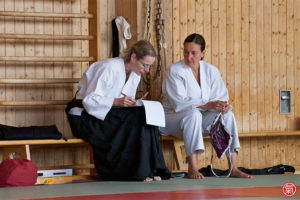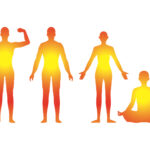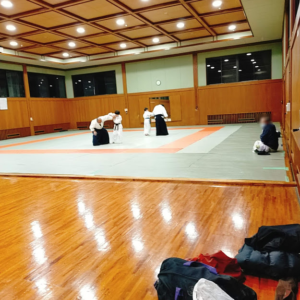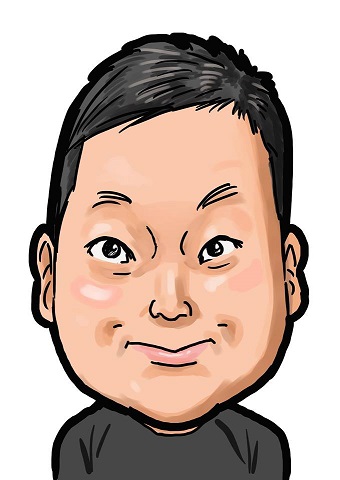こういう方っておられませんか?
常に人に気を遣ってしまう。
人と自分を比べてしまう。
正しいことをやってるのに上手くいかない。
今回はアドラー心理学の入門として最適な本
「嫌われる勇気」「幸せになる勇気」
の2冊を読み終えた感想をまとめてみます。
哲学者と青年の議論という形で書かれています。
芝居の台本みたいな感じです。
「嫌われる勇気」アドラー心理学の基本的な部分を学べます。
「幸せになる勇気」は学んだ上での実践的な内容について学べます。
人生は「選択」の連続です。
その中で如何に自分にとって最良の選択が出来るかが大事になります。
その時、人は知らず知らずのうちに「無難」な選択をしがちです。
何故なら、「怖い」からです。
その怖い気持ちを乗り越えて人生を前進させるには「勇気」が必要です。
本書はその「勇気」を持ち決断できるようになるための方法が議論形式で書かれています。
アドラー心理学とは?
アドラー心理学とは、オーストリアの精神科医・心理学者である「アルフレッド・アドラー」によって創始されました。
およそ100年まえの人なのですが、第1次世界大戦などの難局を乗り越えて作られた心理学です。
詳しくはWikipediaがありますのでそちらを参照されてみてください。
詳しくは次の項目で説明しますが、簡単に言うと「勇気づけ」の心理学です。
日本ではほとんどなじみのない名前です。
巷の心理学の本は大抵、フロイトやユングばかりですが昨今はアドラーも徐々に増えてるみたいですね。
日本での知名度が低いのは、一つはアドラー自身が弟子をあまり取らなかったことと、著書も多くないからだと言われています。
ですが海外ではとてもスタンダードな心理学と言われています。
最近はこの「嫌われる勇気」のヒットにより人気も出てきましたが、最初は難しく感じました。
そしてそのまま間違った捉え方をされ、体罰容認の理由にされたりと残念な影響もあるみたいです。
だからこそしっかりと本質を捉えることでアドラー心理学を理解していきたいと思います。
アドラー心理学の重要なポイント
アドラー心理学は「個人心理学」とも言われます。
どういう事かと言うと、
個人をそれ以上分割できない存在であると考えることから、人間の生を、個人という全体が個人の必要な機能等を使って目的に向かって行動している、というふうに考えている。
です。これについては非常にイメージが難しいです💦
さて、「嫌われる勇気」「幸せになる勇気」を読んで重要だと感じた点は以下5点です。
原因ではなく目的が大事である
私は今まで「常識」として、問題の原因は過去にあると考えていました。
しかしそれは「原因」を求めることになります。
大事なのはその問題が起こった「目的」を考えることです。
実例を挙げるならば、「引きこもり」の人がいるとします。
「原因」を軸に考えるなら、過去に辛い経験(学校での虐めなど)があったから外に出れなくなった。
と考えるのが普通でしょう。
しかしアドラー心理学は「目的」を考えます。
つまり、「引きこもり」になった目的は何なのか?
結論から言えば、過去に辛いことがあったから外に出れないのではなく、「外に出たくないから過去に合った出来事を引っ張り出して意味付けしているだけ。」なのです。
もっと簡単に言えば、「外に出るのが嫌」なだけです。
ここで大事なのは「意味付け」です。
過去に辛いことがあったことは事実です。
ただ、それをどう「解釈」するかは本人次第です。
辛い経験でも、それがあったから今があると肯定的に意味付けすることも出来ますが、
引きこもりの場合だと、それを「辛くて傷ついた」と意味付け(無意識的に)してしまうのです。
課題は分離する事
私が一番関心持ったのはこの考え方です。
課題の分離とはこういうことです。
子どもが勉強しない、と親が嘆くことがあります。
勉強するかしないかは子どもの課題です。
それに対して将来良い会社にいけなくなる、とかいうのは親の目的であり親の課題となります。
つまり、今問題としていることは「誰の課題なのか?」
子どもが子どもが、と言ってるけど実はそれは親の課題ではないのか?
対人トラブルは「他人の課題に土足で踏み込む」か、「自分の課題に周囲を巻き込む」ことが原因です。
前者は良くいますよね、勝手に人の心に土足で踏み込む人。
後者は「人の為に良かれと思って」やってる人が多いみたいです。
どちらも「悪意」は無いからこそ、トラブルになりやすいのでしょう。
とにかく今起きてる問題(課題)は、「誰の課題」なのか見極めることが大事です
自由とは他者から嫌われること
本のタイトルそのままですが、私の場合は常に人の顔色をうかがってばかりいました。
人に嫌われないように。
そして常に作り笑顔で相手に受けが良いように取り繕う。
でもそうすると本当に「嫌われます」。
逆に嫌われることを恐れずに、自由に自分の生きたいままに生きることが大事です。
嫌われろ、と言ってるのではありません。
現に人気のある人はアンチも多いです。
じゃあその人は自由なのか? 自由でしょう。
嫌われるのは嫌じゃないの? そりゃぁ嫌だと言ったらうそになる。
けどそこは「課題の分離」が必要です。
相手が私のことを好きか嫌いかは、相手の課題です。
私が相手を変えることは出来ません。
もし操作しようとすれば反発されトラブルになりかねません。
ここで「勇気」という言葉が出てきました。
なぜ嫌われる勇気が必要なのかは、もっとアドラー心理学を勉強しないといけないでしょう。
ですが最も安全な場所は最も怖い所、と言います。
トラウマは存在しない
これを言うと反発する人も多いでしょう。
しかし目的論を軸とするアドラー心理学は、今起きてる問題は過去を理由にこしらえてるだけと考えます。
だから過去の原因があるなんて、まやかしです。
自分も人付き合いが出来ないと思ってたけど、考えてみれば「人付き合いしたくない」だけでした。
だから過去にあった嫌な事を引っ張り出して、意味付けしてただけなんですよね。
だから「あのとき何があったか?」なんてどうでもいいんです。
大事なのは「これからどうするか?」です。
人に愛を与えることが自分の幸せへと繋がる
ギブアンドテイクが大事と言いますが、それは違うと思います。
アドラーも愛について語っています。
私もですが、ほとんどの人は「どう愛されるか?」というライフスタイル(生き方のようなもの)を選択しています。
しかし、それは子ども時代の話しであり、大人になった今は脱却しなければいけません。
即ち「どう愛するか?」に身を置くことが大事となり、愛するという能動的な行動がやがて共同体全体の幸せとなり、結果自分自身の幸せとなっていくのです。
ここは非常に抽象的でスケールの大きい話なので私もまだ理解不足ではありますが、簡単に言えば、
「ギブアンドギブ」
常に与える人であれ、という事だと思います。
愛されたい人は「TAKER(テイカー)」となり、そんな人には誰も近寄らないです。
「嫌われる勇気」「幸せになる勇気」とは
「嫌われる勇気」「幸せになる勇気」はアドラー心理学の入門的な本としておすすめです。
アドラー心理学は、自分が本来望んでいることを選択できるようになるための「勇気づけ」の心理学と言えます。
仕事、趣味、恋愛など本当は~~したい。けどその勇気がない。
もし、何か壁にぶつかっている問題があるとすれば、その問題は今の自分にどんな意味付けをしているのか?
それを考えてみるといいと思います。
私も仕事において、人付き合いにおいて問題が多かったです。
だからその問題に対して自分がどう意味付けしているのか、常に考えています。
アドラー心理学を日常生活で活かす方法
大それた見出しですが、大事なのは「嫌われる勇気」「幸せになる勇気」を読んで理解したつもりにならないことです。
読んで、良い本だなと思ってる状態では「学んでないのと同じ」と思います。
勉強したうえで、「一歩」踏み出してみましょう。
私の場合はまず自分から相手に歩み寄ることから始めたいと思います。
まとめ

最後まで読んでいただきありがとうございました。
今回は「嫌われる勇気」「幸せになる勇気」を読んで気づいたことと、これからどうするか?
を考えたことを書いてみました。
そう、何が原因かではなく「これからどうするかが大事」なのです。
過去には戻れませんし、戻ったところが何かが変わるわけでもありません。
もっと言うなら「過去」など存在しないのです。
自分が様々な決断をしますが、それがどういった意味付けをするのか?
そして勇気をもって一歩前へ進むことが大事なのだと思います。
以上、たいこでした。

















